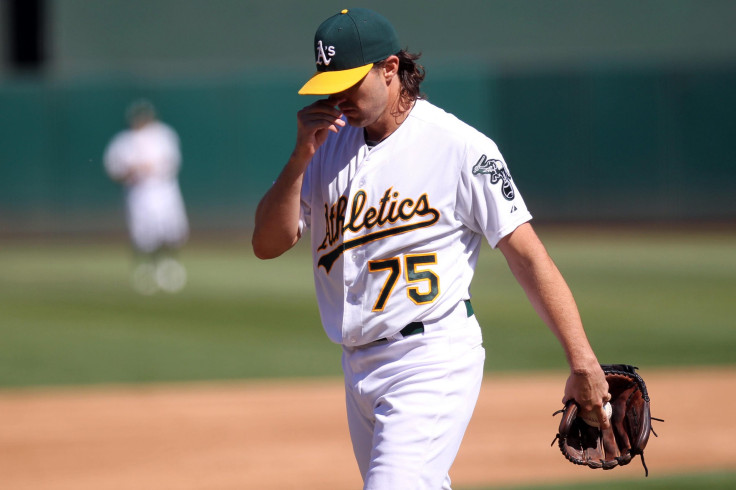MLB Antitrust Case: Supreme Court Dismisses San Jose's Challenge On Oakland Athletics Relocation

The U.S. Supreme Court declined Monday to hear the city of San Jose’s challenge to Major League Baseball’s exemption from antitrust laws. The court’s decision was yet another setback in the California city's lengthy effort to circumvent the MLB’s block on its efforts to build a new stadium for the Oakland Athletics.
The Supreme Court did not provide an explanation for its decision not to hear the case, Reuters reported. The challenge’s dismissal essentially confirmed a previous ruling by the U.S. 9th Circuit Court of Appeals in January. At the time, the federal appeals court sided with Major League Baseball, determining the league’s antitrust exemption invalidated San Jose’s claims that the league’s decision to block the A’s from relocating violated federal antitrust laws. The MLB has had an antitrust exemption since 1922.
The Athletics have played at the Oakland Coliseum, which they share with the NFL’s Oakland Raiders, since the 1960s, but the team’s ownership has long expressed dissatisfaction with the stadium’s aging facilities. The A’s averaged fewer than 22,000 fans per home game during the 2015 season, ranking 27th among the 30 MLB teams.
A’s ownership and San Jose officials have expressed mutual interest in building a stadium for the franchise in the city for years, but MLB officials blocked the proposal because the project falls within the San Francisco Giants’ territorial rights. With a potential move to San Jose unlikely, the A’s signed a 10-year extension on its Oakland Coliseum lease agreement in July 2014, with the ability to opt out of the deal after four years, the San Francisco Gate reported.
San Jose filed its first lawsuit against Major League Baseball and then-commissioner Bud Selig in June 2013, but a district court judge ruled the league’s exempt status blocked the city’s antitrust claims, the Associated Press reported.
The challenge to Major League Baseball’s antitrust status was dismissed days after a U.S. federal appeals court ruled on an antitrust case involving student-athletes and the NCAA. In that case, the court decided the amateurism no longer exempted the NCAA from antitrust challenges.
© Copyright IBTimes 2024. All rights reserved.












